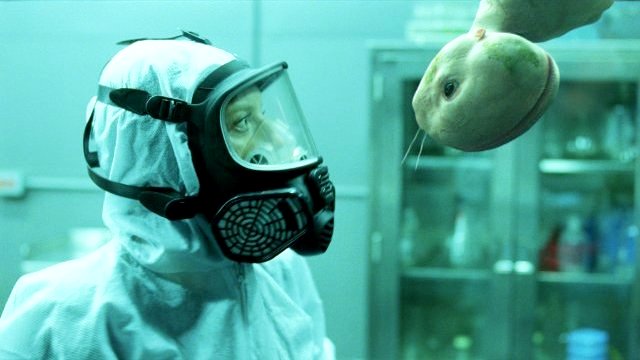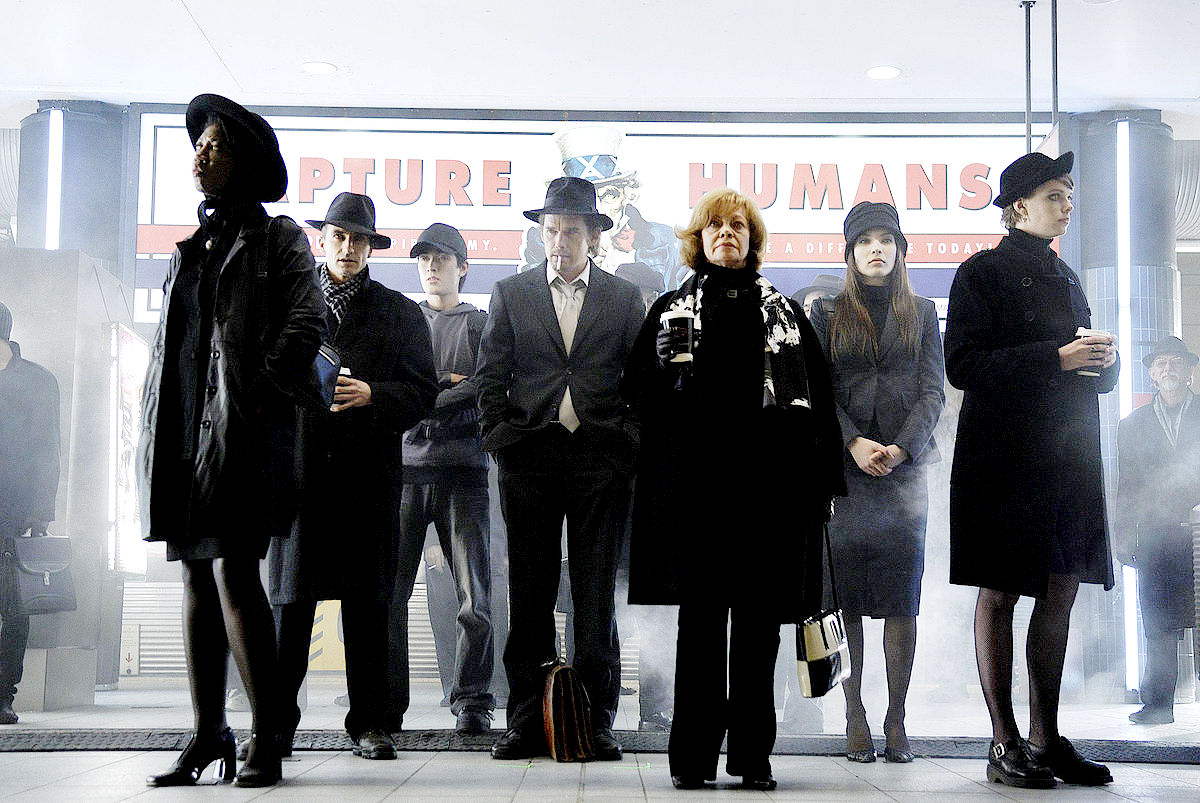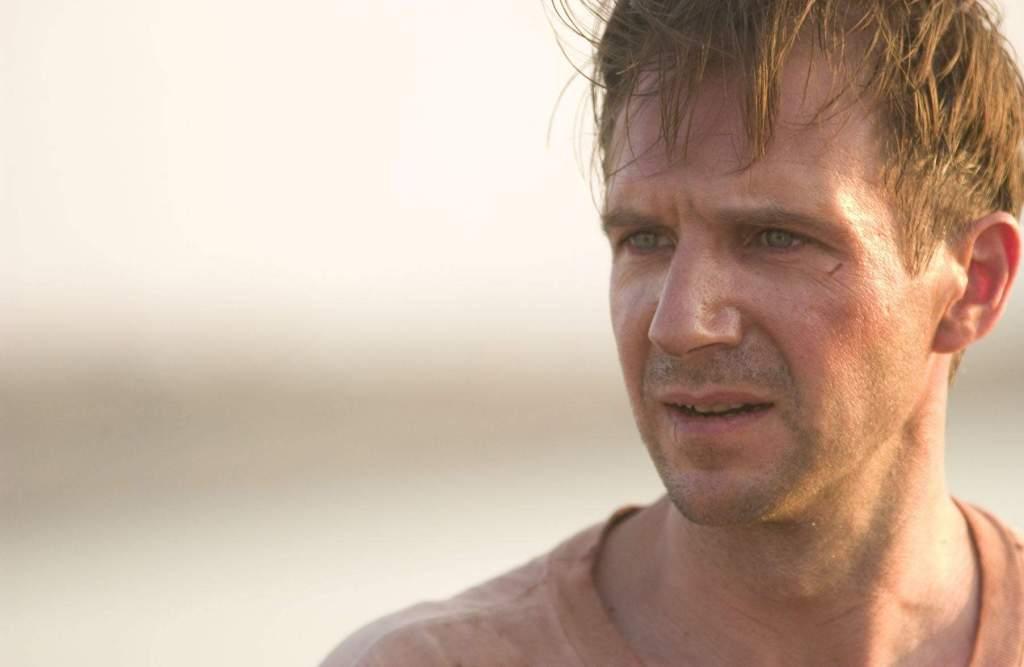
Happy to serve up a vaguely creepy science-gone-wrong story with a self-aware grin and a side of political push-buttons, Vincenzo Natali’s Splice, which I caught last weekend and haven’t had time to write about, is, overall, an engaging genre outing in the key of Cronenberg. In many ways, it’s the contemporary Frankenstein complement to the Spierig’s vampire reverie Daybreakers earlier this year. Both are smart, frothy, and decently entertaining popcorn flicks with a sense of humor and a grab-bag of modern anxieties to play with, and both deliver if you go in with your expectations firmly calibrated at B.
That’s B as in B-movie, although, to be fair, Splice doesn’t have the low-grade, “what the hell am I watching?” straight-to-video feel of Natali’s memorable cult breakout Cube. That’s mainly due to the presence of Adrien Brody and Sarah Polley here, both likable and talented stars who exude intelligence and off-kilter charm, and both of whom seem game for anything this genre material throws at them, without ever condescending to it. (And, after all, why would Brody condescend to this? The man made The Jacket and will soon be in Predators, for Pete’s sake.)
In any case, here the aforementioned duo are lovebirds and genius biochemists Clive Nicoli (Brody) and Elsa Kast (Polley) — the names, other reviewers inform me, are a Bride of Frankenstein reference. While bantering back-and-forth in high-speed genetic Trekspeak (they come across as more hipstery versions of the buttoned-down Primer guys), Clive and Elsa spend their days in an expensive lab paid for by Big Pharma, splicing together new forms of hybrid life in hopes of finding some –any — lucrative new product for the drug market. (Well, that’s the company’s goal anyway — Clive and Elsa just like pushing the frontier and playing with their toys.)
But when the powers-that-be decide that all this basic research is a waste of money and pull the plug, Clive and Elsa feel compelled to take Splice Club up a notch. Unbeknownst to her Pharma masters, Elsa in particular, who we find out later may not have the best sense of judgment around, decides to go out on a limb and add human DNA to their primordial soup. Clive, for his part, has a nagging sense that this is probably a bad idea, but he is hesitant to stop Elsa once the die is cast. Well, that was their first mistake. For, when this new, state-of-the-art bun at last emerges from its oven, our two scientists have a lot more to contend with than just another run-of-the-mill, wormy abomination like the dozen previous iterations. (Said worms, by the way, are both repellent and hilarious, and are the centerpiece of the most absurdly funny scene in the film.)
Instead, they have bioengineered “Dren,” a chittering creature who at first looks like a factory reject from the cute Disney sidekick assembly line, but soon grows into something more recognizably human. And when, after a few months as a inordinately bright little girl (Abigail Chu), she evolves into a reasonable approximation of Sinead O’Connor in the “Emperor’s New Clothes” video (Delphine Chaneac), except with gills, wings, hand-like feet, and a scorpion tail…well, let’s just say that just opens up a whole can of unnatural hybrid-y worms for Clive, especially after he figures out the identity of Dren’s DNA donor. Heady moral quandaries can do a funny thing to a man, and, after a few stiff drinks one evening, he’s not really going to…is he? He is? Ewwwwww. (I think one can guess how Clive would play through Mass Effect.)
It’s not often, this side of Woody Allen’s Everything You Wanted to Know about Sex (But Were Afraid to Ask) or Todd Solondz’s blissfully disturbed Happiness, that you find a film that involves deeply un-funny issues like incest, abortion, and bestiality, and yet somehow, some way, stays amusing. But, to the movie’s credit, there’s a knowing, tongue-in-cheek sensibility to Splice throughout, and even while it’s playing the story straight, it seems to have a very good sense of how ridiculous it is at times. (In a testament to their acting chops, Brody and Polley seem in on the joke even as they’re writhing on the horns of their dilemma.) The movie isn’t played for laughs by any means, but it also has an undeniable nudge-nudge-wink-wink quality that keeps the sailing smooth even through potentially treacherous waters. (For a good example of how a movie with more self-importance and less self-awareness can falter with similar material, consider Michael Winterbottom’s abysmal Code 46.)
Aside from its Freudian head-games, Splice — like Daybreakers and genre B-films from 28 Weeks Later to Village of the Damned and countless more in-between — has all kinds of timely political grist to mill over its run. from 21st concerns about bioethics to more bad behavior by pharmaceutical companies to, in its final shot [Spoiler, if you know your magazine racks], a potential comment on this month’s Atlantic cover article. It doesn’t say anything particularly new or interesting about any of these themes, of course, but they are there to give the film color regardless.
Let me put it this way: If a movie like the much-superior Let the Right One In feels, as I said in 2008, like a wintry Stephen King short story, this saucier, clinical, and more acerbic nightmare is closer to what you might find in a Clive Barker paperback ’round the same era. Is Splice a must-see for horror and sci-fi fans? No, I wouldn’t say that. But it’s not bad at all for a B-movie, and it delivers two hours of mildly thought-provoking, occasionally funny genre fare at about the level of its ambitions.







